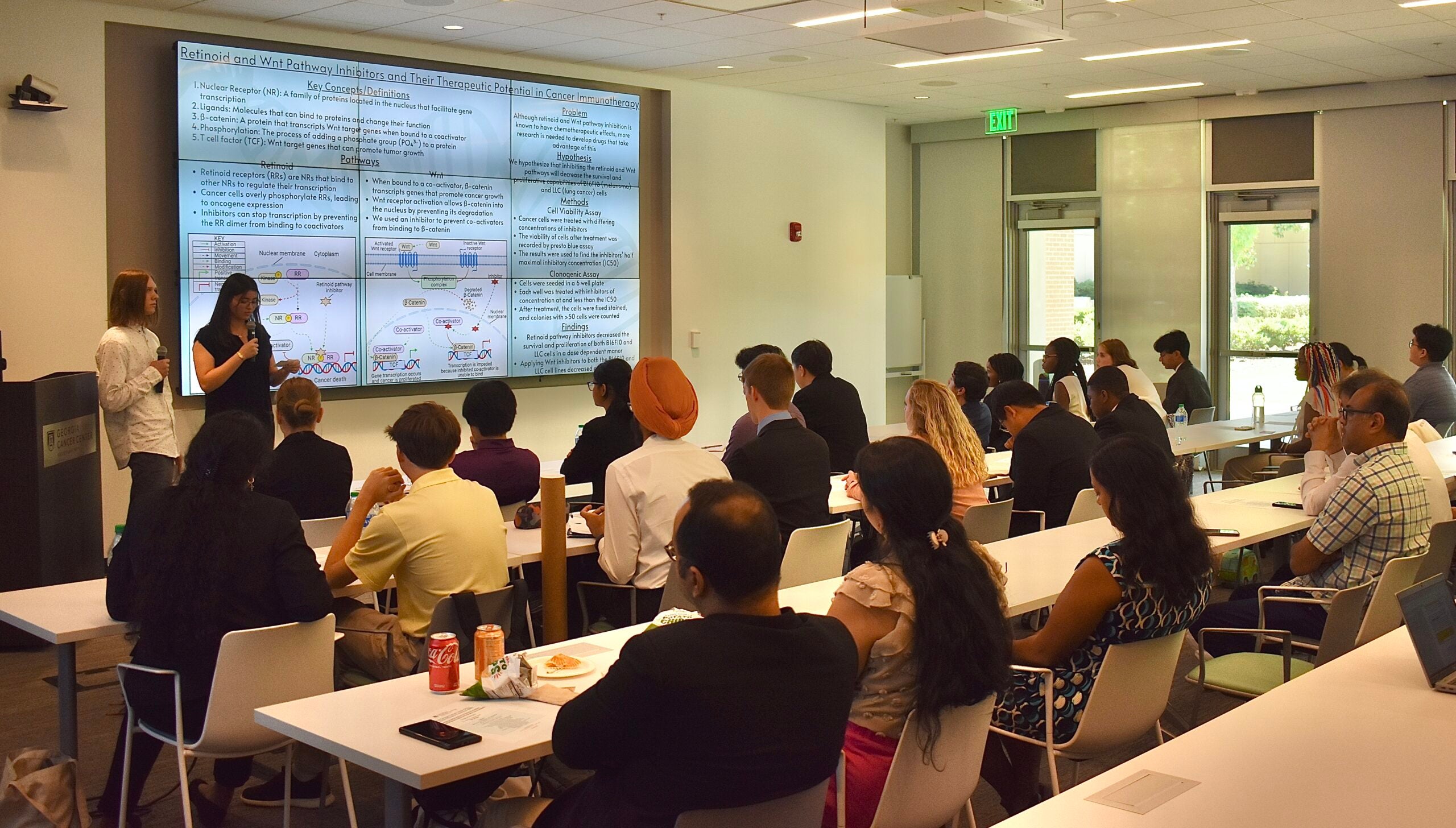The Georgia Cancer Center invited 22 high schoolers from around the CSRA to participate in their second annual summer research program to discover the significance of data collecting.
Offered for six weeks to students at least 16 years old, the Summer Cancer Research Experience allows rising high school seniors and juniors to participate in leading-edge cancer research and career exploration side-by-side with top working professionals.
MORE: Augusta Mall is safe, records show
Featured topics of the program include projects in cell and molecular biology, cancer immunology, metabolism, clinical investigation, developmental therapeutics, genomics, population science, health disparities and other focus areas.

During their time at the center, participants learn key principles their high school education might not expose them to, such as cancer biology and investigation, hands-on laboratory experience, and benefitting from individual mentoring with members of the GCC community.
GCC Director of Grant Development Rhea-Beth Markowitz said the main purpose of the program is to proactively build and interest future generations of the cancer research workforce.
“We want to expose to high school students what cancer research is really all about, because they don’t truly know, and this is a great opportunity for them to come together and look in the laboratories while learning different skills,” she said. “It’s an incredible experience for the students.”
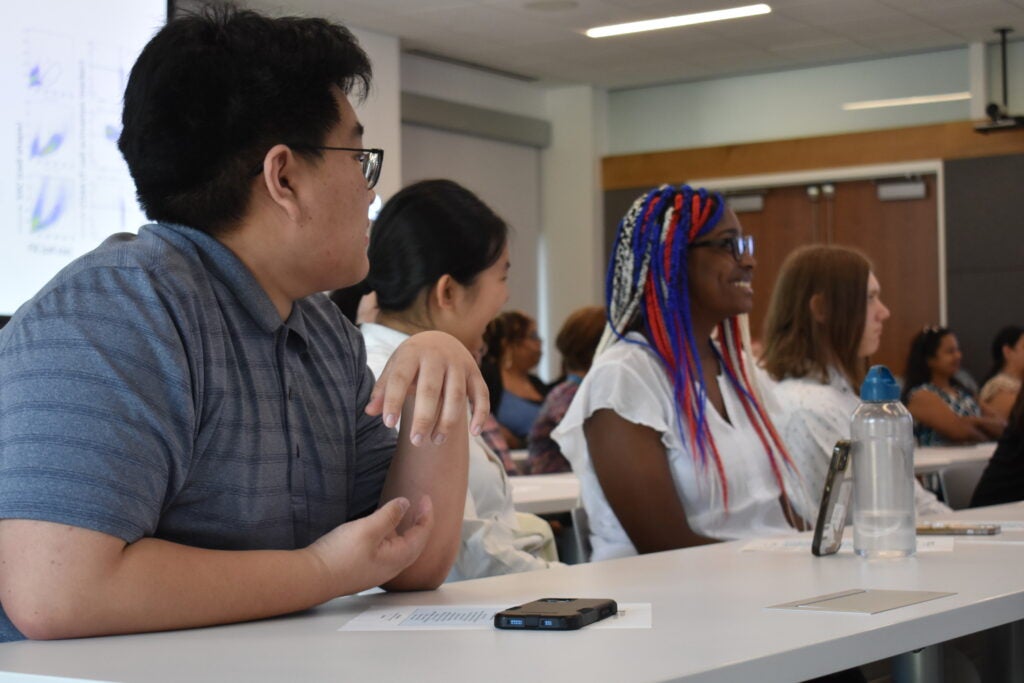
Hosting students from around the state, some as far South Carolina, Markowitz said encouraging students to learn about various fields of science also gave them the opportunity to look past the stereotypes of research and possibly discover a new career path.
“People think that cancer research is all about the laboratory, mixing things and that, but there are really other aspects of it,” she said. “So when these students are placed in the population health areas or the computer bioinformatics they’re surprised, and they get excited because it’s not all just chemistry.”
Mentor and GCC researcher Malcolm Bevel, who specializes in cancer epidemiology and population health, said his three assigned students analyzed how health and food disparities affect cancer cases, which is going to help fuel more research in cancer prevention.
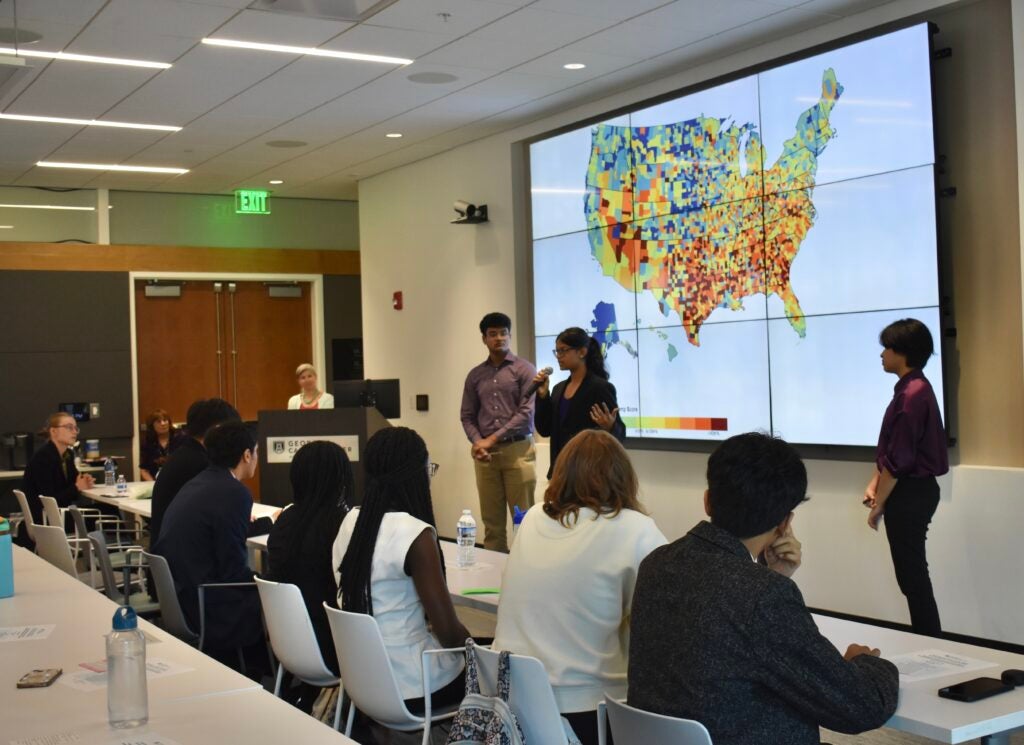
“I let them have ownership over their research and they found some pretty interesting things, and we’re going to continue the work in that even after this program,” he said.
This year, Bevel said the program further improved by focusing more on community outreach and providing students with more outside resources and information.
From his own experience, Bevel said he believes early exposure to research allows high schoolers to “find their niche” in the expansive and competitive field prior to college, and this can help fill growing needs or “holes” in research.
Ally Xu, a rising senior at Lakeside High School, said she was pleasantly surprised to work under Bevel because of her dual interest in medical and socioeconomic issues, which is combined in Bevel’s research regarding the connections between food swamps and cancer proclivity.
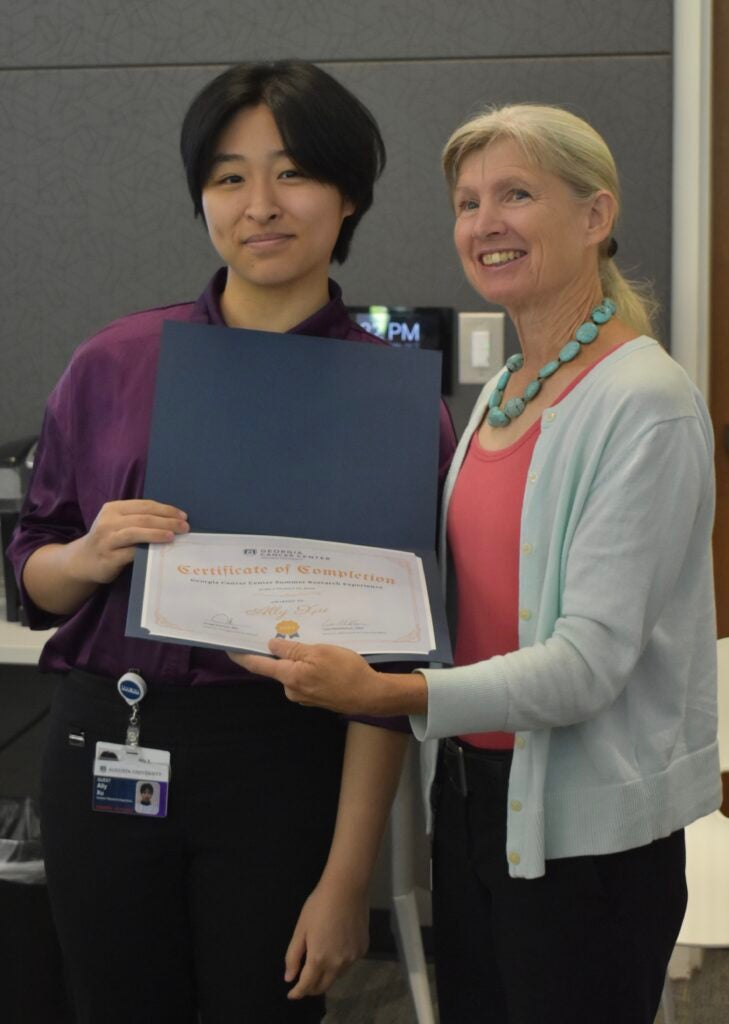
“I really thought this was going to be doing stuff in an actual lab, but this experience has been really nice … it’s been a really interesting and fulfilling experience, and I loved it,” said Xu. “I believe it’s important to be really well-rounded in what you do and your experiences, so I try to take any chance I can to be immersed in the science world because it’s very beneficial.”
After seeing her own grandmother battle breast cancer, Xu said she became interested not only in researching cancer but also the aftereffects on patients who survive.
“I’ve always just been really interested in how it works,” she said.
Carolyn Alex, a rising junior from the Alliance Academy for innovation in Forsyth County, said she was grateful to walk alongside researchers in the GCC and gain incredible insight into the progress of the field. For her, the program gave fellow students the chance to envision themselves in laboratory and medical careers.
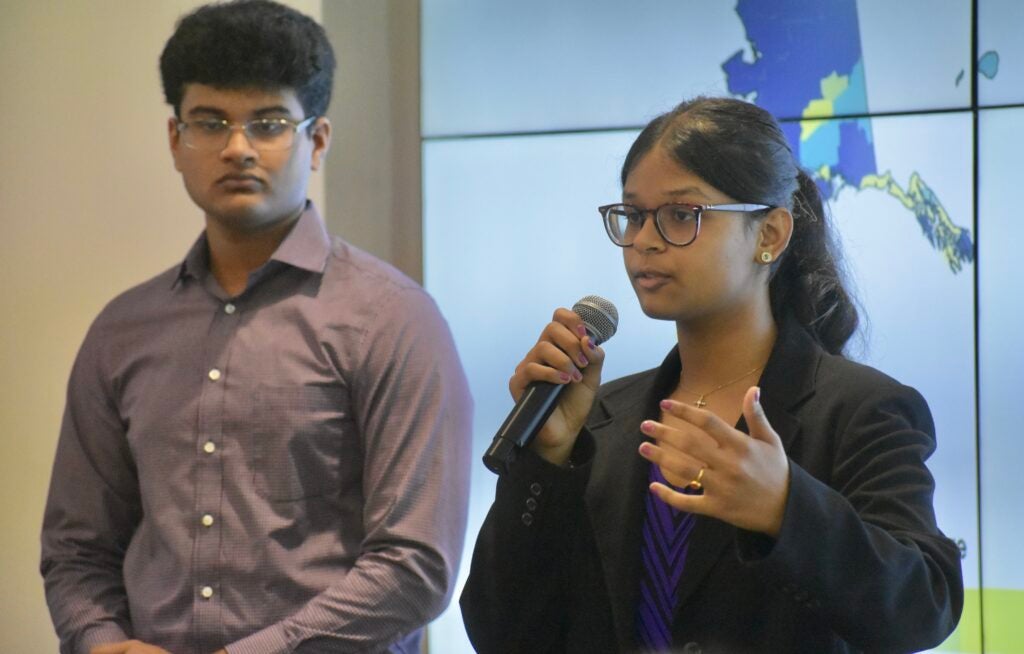
“It definitely gave me more adoration for the field of research,” she said. “We as high schoolers are the future generation, and we’re the future doctors, teachers and lawyers of tomorrow, so it’s important to get engrossed early because we’re the forefront of the battle against cancer.”
Second year participant Theerth Srinivasan, a rising senior at Lakeside High School, said learning about epidemiology in the program allowed him to see the significant value in an otherwise “forgotten science.”
“It’s something you know exists in the back of your head but you never really see yourself doing it until you’re there, and I believe it’s really important for people to get exposed to fields like this,” he said. “For me, it’s all about exposure … it gives you more time to think about what you want to do in the future.”
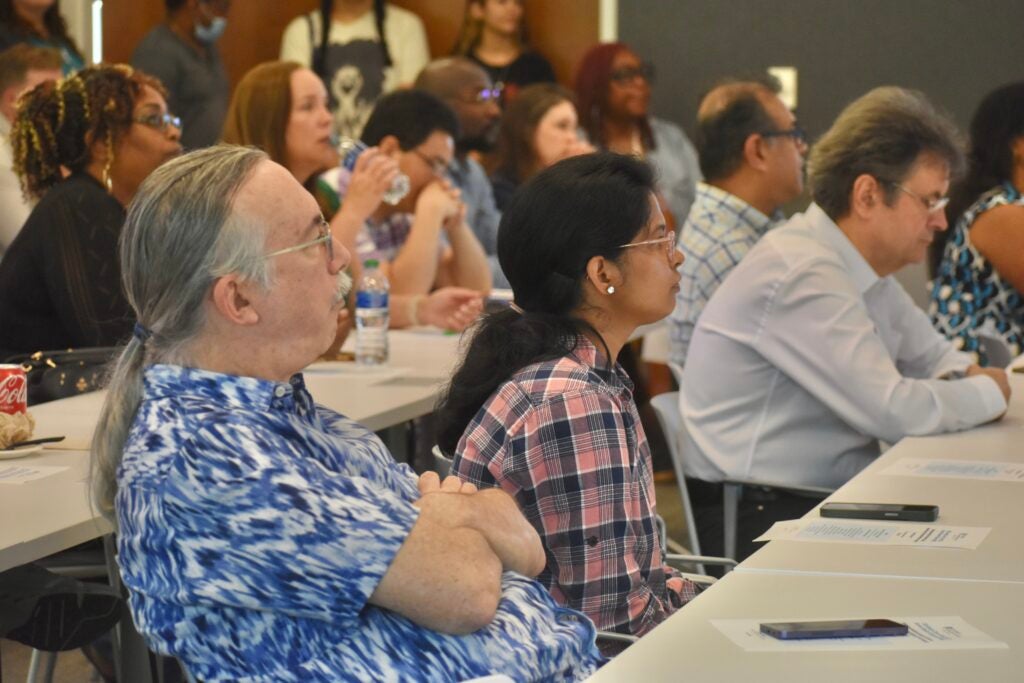
While Alex, Xu and many other participants in the program have been impacted with familial cases on cancer, which strongly impacted a personal fascination in medicine and cancer research, Srinivasan said his interest in the medical and science realm was more inspired by the vastness of the disease’s reach.
“It’s really scary – people all around you and you have known your whole life are affected by it – which led me to joining this program,” he said.
However, he thinks research programs, much like the GCC’s, are stepping stones towards a better and healthier future because every study leads to doctors knowing more about the various kinds of cancer.
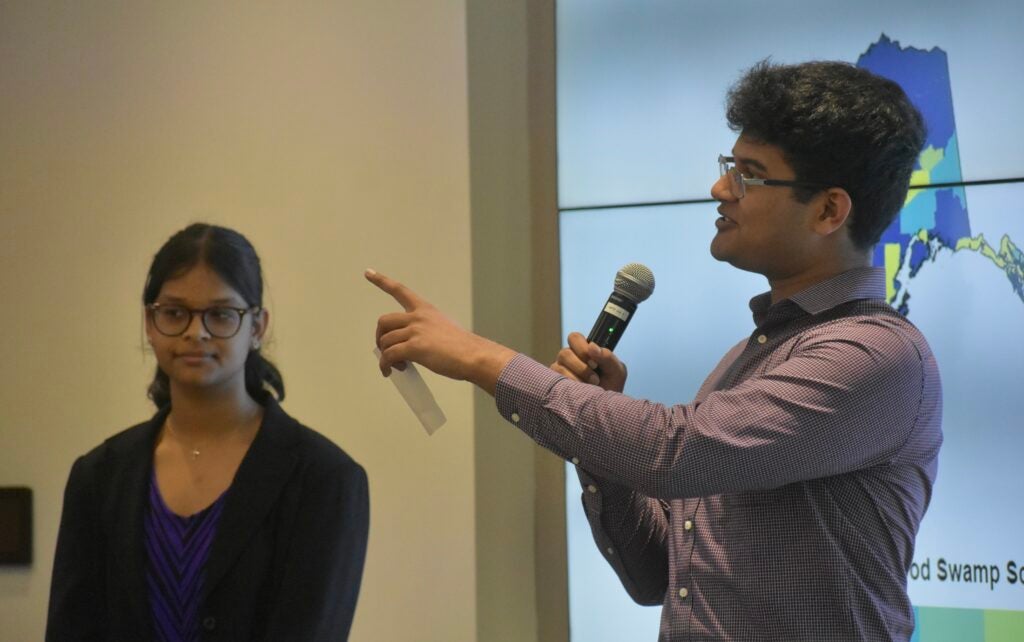
“Even though they say there’s no cure, I believe that for each specific cancer there is something we can do,” he said. “I stick to that.”
To end the six week program, students were encouraged by mentors to present their research to GCC personnel, family members and friends, before receiving completion certificates and leaving with smiles.
“This is a great opportunity for them to understand what a career in science is. Sometimes, when you’re in middle or high school, you don’t get the whole picture of what it means, but rather the image of a mad scientist sitting in the lab,” said Jorge Cortes, director of the GCC. “But when you interact with them and have your own project like this, it may be what you need to trigger an interest and make it into a career.”
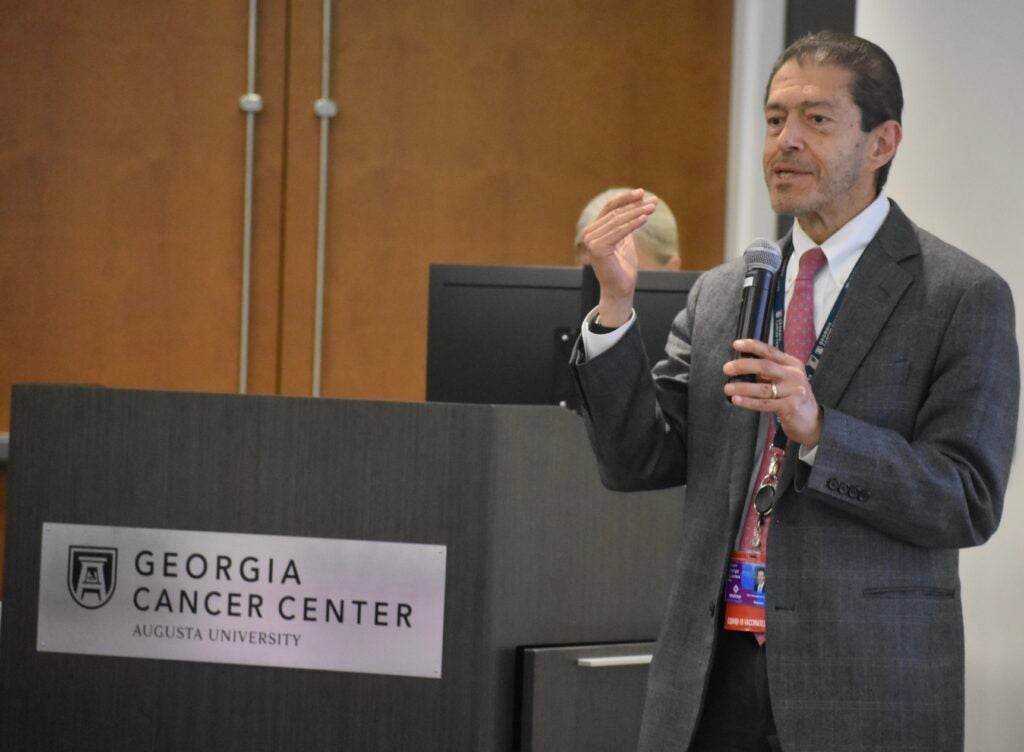
As each left the GCC one final time on the last day of the program, Cortes said he hoped every student walked away understanding the vast impact they could have on the field as they prepare to “lead the way of the future.”
“It’s a great program to have and next year we hope to have more,” he said. “It’s fantastic to see that they’re not just students from Augusta, but they’re coming from all over the CSRA … you’re hopefully seeing right now the future faculty and next director of the cancer center here with us.”
For more information about the Georgia Cancer Center and their research programs, visit: https://www.augusta.edu/cancer/education/

